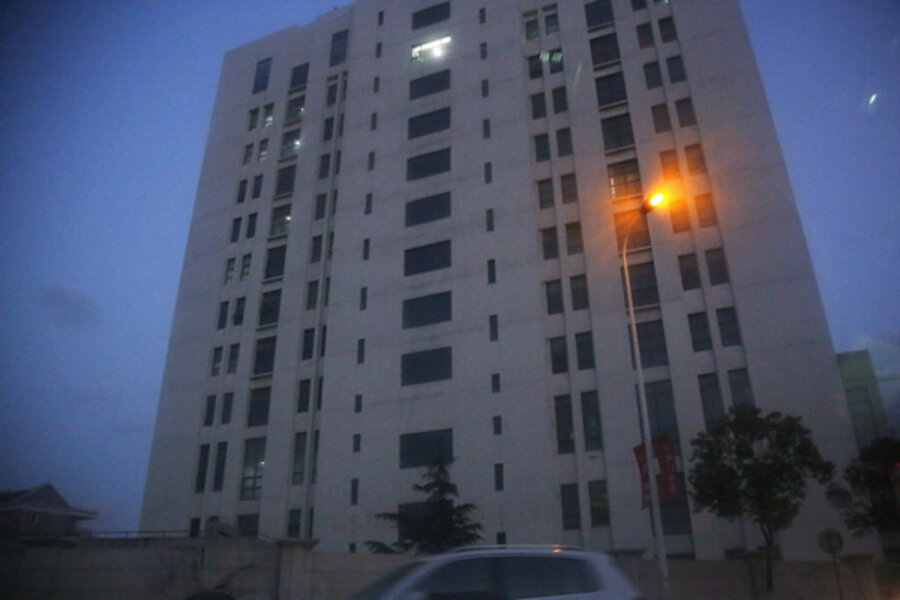White House targets cybertheft as worries about China mount
Loading...
The Obama administration on Wednesday unveiled a new strategy aimed at stemming cybertheft of US trade secrets, just two days after a major report alleged that cyberspies linked to China’s military had siphoned technology secrets from more than 100 US companies over seven years.
The new strategy, the administration says, would slow the theft of secrets, which if left unchecked would erode or significantly damage the competitive advantage of US companies in foreign markets, diminish export prospects around the globe, and jeopardize American jobs.
Emerging trends show “the pace of economic espionage and trade secret theft against U.S. corporations is accelerating,” including cybertheft, the new policy document says.
“As the Strategy lays out, we are taking a whole of government approach to stop the theft of trade secrets by foreign competitors or foreign governments by any means – cyber or otherwise,” said Victoria Espinel, the White House US intellectual property enforcement coordinator, in a statement.
Steps the administration expects to take include:
- Ramping up diplomatic pressure. The US will work to build coalitions with other countries, work with overseas law enforcement, and use trade policy to press for better protection of trade secrets overseas.
- Industry-led efforts to develop best practices to protect trade secrets and encourage companies to share best practices to lessen theft of trade secrets.
- Accelerating Department of Justice investigations into trade-secret theft by foreign competitors and governments. The Federal Bureau of Investigation and intelligence community will give US companies warnings and threat assessments on technology being targeted for theft by foreign competitors and governments.
- Review US laws to determine if changes are needed to boost enforcement.
Some steps, the new policy noted, have already been taken. Congress passed one bill to close a loophole that had allowed the theft of valuable trade-secret source code and another to increase criminal penalties for economic espionage and trade-secret crimes.
On Monday, a landmark report issued the cybersecurity company Mandiant of Alexandria, Va., outlined one potential aspect of the threat. It pointed the finger directly at China's military as a primary force behind the “advanced persistent threat” against Western cybernetworks.
It said an elite cyberespionage division of the People’s Liberation Army, called Unit 61398, has stolen data from at least 141 companies spanning 20 major industries, primarily in the US. Targeted for theft were “broad categories of intellectual property, including technology blueprints, proprietary manufacturing processes, test results, business plans, pricing documents, partnership agreements, and emails and contact lists from victim organizations’ leadership,” the report said.
Intellectual-property groups were heartened to see movement on the issue Wednesday. "The new strategy to be announced by the White House is a sign that the US is going to take a tougher line against trade secret theft and press foreign nations to follow the agreed-upon trade standards," added Rob Atkinson, president of the Information Technology and Innovation Foundation, in a statement. "We urge Congress to continue to support the Administration's efforts to aggressively fight U.S. trade secret theft."
The White House document cited numerous cases of technology theft, including many by Chinese operatives. On Aug. 29, 2012, Hanjuan Jin, a former software engineer for Motorola, was sentenced in the Northern District of Illinois to four years in prison for stealing trade secrets from Motorola, specifically Motorola’s proprietary iDEN telecommunications technology, for herself and for Sun Kaisens, a company that developed products for the Chinese military. According to court documents filed in the case, Motorola spent more than $400 million researching and developing the iDEN technology in just a few years.
Ms. Jin, a naturalized US citizen born in China, had among her belongings more than 1,000 electronic and paper Motorola proprietary documents when she was stopped by US authorities at Chicago’s O’Hare International Airport as she attempted to board a flight to China in early 2007.







